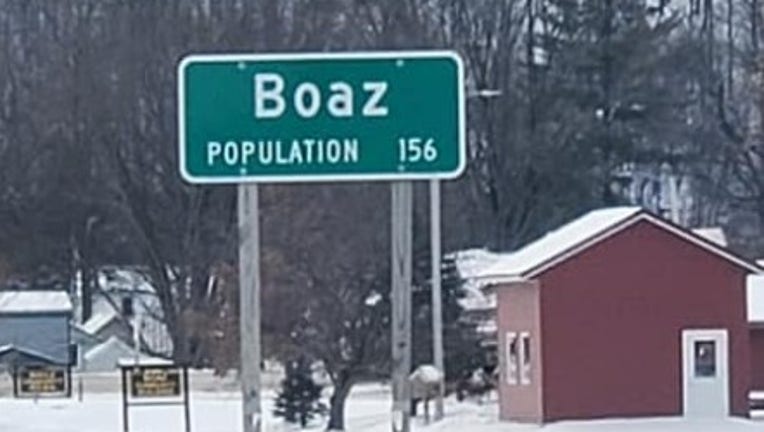Boaz to host Wisconsin's 1st community-scale microgrid

Boaz, Wisconsin
BOAZ, Wis. - Tucked just off Highway 14 on the way from Richland Center to Readstown, the village of Boaz has a church, a bar and a supper club.
It will soon add a battery-powered microgrid to its list of amenities, the Wisconsin State Journal reported.
Alliant Energy is installing the $3 million microgrid in an effort to improve reliability with technology that could someday make the electrical system more resilient and able to make better use of intermittent wind and solar energy.
With just a single overhead distribution line running into town, Boaz, population 156, presented Alliant with an opportunity to test a new approach in a real-world situation.
"It’s a relatively small community ... and it’s in a unique situation: a community connected to a three-mile extension cord," said Mike Bremel, Alliant’s director of engineering.
"There’s times we’re out three, four times a year," said village trustee Kerry Gies. "If a tree lands on the line between Boaz and Blue River, we’re pretty much out."
Rather than spend the money to bury the line or build a backup, Alliant decided to install a 250-kilowatt battery designed to meet peak load for up to 8 hours and keep the lights on for more than a day under normal circumstances.
"Do you underground your extension cord or do you have a battery? ... The project is really designed for us to get ahead of how these technologies may be used in the future and understand how they’re used before they’re at our feet."
Bremel said test projects like this will be key to Alliant’s plans to replace thousands of megawatts of coal-fired power plants with wind and solar energy.
Expected to be operational by fall, the Boaz battery will initially be charged with electricity from the larger grid. There may be an opportunity in the future to add solar panels, Bremel said.
A microgrid is essentially a smaller version of the electrical grid that delivers electricity from power plants to homes and businesses. What makes it special is the ability to keep operating when the larger grid goes down, said Peter Asmus, a researcher with Guidehouse Insights who tracks microgrid development.
"Microgrids come in all sizes and shapes, all different kinds of resources," Asmus said.
SIGN UP TODAY: Get daily headlines, breaking news emails from FOX6 News
Pioneered by UW-Madison scientists, microgrids can use solar panels, diesel generators, batteries or some combination of resources to supply electricity when operating as islands.
When strung together, they can make the grid more flexible and less susceptible to interruptions and make better use of small "distributed" generators like rooftop solar panels, said Fei Ding, a senior engineer with National Renewable Energy Laboratory who is studying ways that microgrids can help restart the larger grid after blackouts.
Microgrids are seen as a way to bring power to people in regions without access to electricity as well as a way to increase reliability and resiliency in developed countries while making better use of intermittent clean energy sources.
They also offer a more manageable platform for utilities to test out things like battery storage, said Dominic Gross, an assistant professor of electrical engineering at UW-Madison.
"Developing all these technologies at grid scale can be a very costly endeavor," Gross said. "This allows you to develop them at a smaller scale."
Alliant last year installed a small solar-powered microgrid at a remote state park as an alternative to running wires through rugged terrain. And regulators earlier this year approved an Xcel Energy pilot program to equip large customers — such as factories and municipal facilities — with microgrids.
But Boaz will be the first community-scale microgrid in Wisconsin.
Though microgrids have been around for decades, Asmus said wildfires, hurricanes and other extreme weather events have driven a "huge uptick" in interest, including from utilities that have historically viewed them as competition.
"They can put their head in the sand and pretend nothing’s changing or figure out what is their role as the energy market is changing," Asmus said. "More and more businesses are generating their own power. They’re not going to have a monopoly."
Featured
US Marshals seek Kyleef Conley: 'We consider him dangerous'
It has been nearly a year since a warrant was issued in Milwaukee County for the arrest of Kyleef Conley.
Featured
Hales Corners ambulance crash near 43rd and Oklahoma
Milwaukee police are investigating a crash that happened Saturday, Jan. 8 involving a Hales Corners Fire Department ambulance.

Firefighters killed in Mineral Point crash identified
Authorities have identified two Mineral Point firefighters killed in a crash in southwestern Wisconsin.



